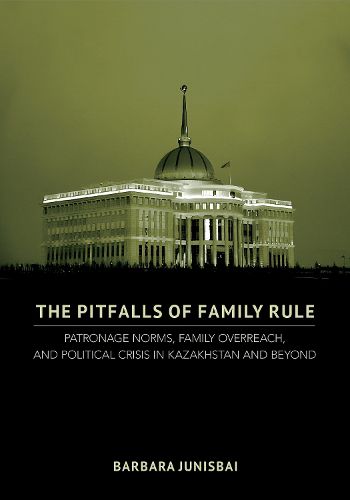Readings Newsletter
Become a Readings Member to make your shopping experience even easier.
Sign in or sign up for free!
You’re not far away from qualifying for FREE standard shipping within Australia
You’ve qualified for FREE standard shipping within Australia
The cart is loading…






In The Pitfalls of Family Rule, Barbara Junisbai questions the conceptual divide separating democracy from nondemocracy as well as that separating "strong" authoritarian rulers from "weak" ones. Focusing on patronage, endemic to post-Soviet Eurasia but also present the world over, she untangles the spoils agreements that bind elites to strongman presidents. Incorporating multiple case studies, including an in-depth investigation into Kazakhstan over the span of twenty plus years, Junisbai demonstrates the power of institutional norms to hold seemingly unconstrainable rulers accountable in surprising and unexpected ways. "Strong" autocrats can stumble even when they set in place robust, pro-presidential institutions, while "weak" autocrats can endure by upholding normative contracts that elites perceive as fair and just.
An important lesson emerges from The Pitfalls of Family Rule: not even the most personalist of regimes functions free of rules. The institutions over which autocrats claim control also lay claim over them.
$9.00 standard shipping within Australia
FREE standard shipping within Australia for orders over $100.00
Express & International shipping calculated at checkout
In The Pitfalls of Family Rule, Barbara Junisbai questions the conceptual divide separating democracy from nondemocracy as well as that separating "strong" authoritarian rulers from "weak" ones. Focusing on patronage, endemic to post-Soviet Eurasia but also present the world over, she untangles the spoils agreements that bind elites to strongman presidents. Incorporating multiple case studies, including an in-depth investigation into Kazakhstan over the span of twenty plus years, Junisbai demonstrates the power of institutional norms to hold seemingly unconstrainable rulers accountable in surprising and unexpected ways. "Strong" autocrats can stumble even when they set in place robust, pro-presidential institutions, while "weak" autocrats can endure by upholding normative contracts that elites perceive as fair and just.
An important lesson emerges from The Pitfalls of Family Rule: not even the most personalist of regimes functions free of rules. The institutions over which autocrats claim control also lay claim over them.